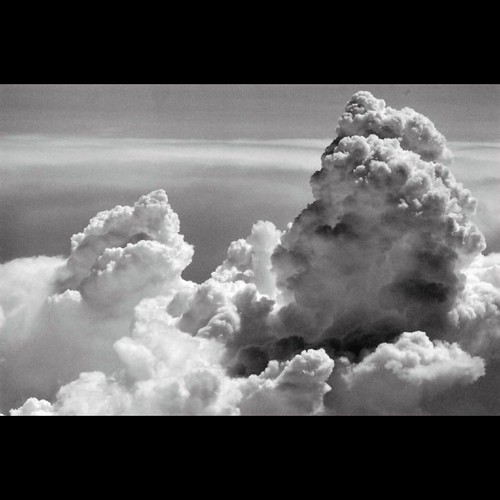
via
...This time last year I was listening to Clive Scott give a fascinating lecture on translation, in which he criticised our common notions of translation as fakery, almost criminal fakery, and illustrated his thesis with possible readings of a poem by Apollinaire. As he talked he produced an ever more complex set of notations on a single sheet of paper, a set of notations, I thought, remarkably like a cloud, or, indeed, like a whale. It was a daunting lecture that made me think very hard not only about my concerns as a translator but as a poet. They were troubled thoughts, as is only proper. Out of these troubled thoughts came this poem:
The Translators
1.
Sometimes you see clouds drifting past the city,
inventions of the sky,
within which images appear then petrify
and remain there in perpetuity.
Otherwise things shift with a certain insouciance
but keep moving. Meaning vanishes
into night, into the vacant parishes
of the imagination, into a non-presence
that is positively terrifying. But there,
the clouds still loom like statues
with faces, as if one could choose
to see them suspended in imagined air.
2.
I have jumped to conclusions in my time.
What else would you jump to otherwise?
To orders? to attention? Look into the eyes
of language and you see nothing. Only rhyme
and punctuation. I have talked to ghosts
in ghost language, the solemn dead
at their jabber, hearing the music of instead,
the sigh of the wind at its last post.
I once had a mother who used at times to speak
but now I only conjure her. We carve
images into clouds so we should not starve
for lack of company. We break
the silence into pieces, syllables of space.
We are translated into ourselves. The sky
rushes at us. We observe it insouciantly,
watching clouds move, looking for a face.
3.
We have seen mirrors in darkened rooms
hunger for you. We have seen the dead
in your streets. We have felt the dread
of our faces and the shapes a face assumes
in its own mirror. We owe them a shape,
all those faceless ones, you and I.
We should feed them before they petrify,
before their clouds pack up or else escape.
4.
How do I know myself before I have created
my simulacrum? How are the hungry
to be fed? Listen, the sky is angry.
The gods are demanding to be translated.
- from The Burning of the Books (2009)
The central image there is of seeing faces in clouds rather than camels or weasels or whales. The poem proposes, in so far as poems propose as such, clouds like statues with faces, faces that are of vital importance. The face of the speaker’s dead mother is there, though he knows he is only imagining her. You look into the eyes of language, says the poem, and you see nothing except punctuation and rhyme. Eventually the poem begins to guess that it is our own faces we are looking for when we search the clouds of language. The point of writing is to translate clouds of experience into language that matters: to create our simulacra. The faces in the clouds, the poem guesses, are the only faces we have. It conflates various ideas: of seeing, of desiring to see, of interpreting, of translating and of creating and offers them as a single complex act in which, however, it still makes sense to talk of individual components. We are the hungry, says the poem at the end. The sky is angry and demanding. It is the gods there that demand translation. In other words, we experience our state of being in cloudy terms that require us to see images in them...
*
to be continued.

7 comments:
'We are translated into ourselves. The sky
rushes at us. We observe it insouciantly,
watching clouds move, looking for a face.'
Lovely. Here's to insouciance (always liked that word).
And I am a sucker for clouds (what Michael Foley called 'the forty shades of grey). But, though I have seen in clouds translations/manifestations/transmogrifications..., I especially like them as clouds:
http://www.flickr.com/photos/granier/2480898387/in/set-72157604586499474/
That's a gorgeous picture, Mark. Coould I use it, (fully accredited, of course)? It belongs here very well.
Of course George. I'd be honoured.
Just looked at more of your cloud photos. They're wonderful! And thank you for the permission.
ps I see you have a dragon there somewhere, as one of the commenters has pointed out.
Mark, I've tried to pick up your cloud photo, and indeed other of that series, but the photos won't let me, so I've had to use another for the latest post. Is it a matter of buying the photo first?
Hi George, Probably because the files are incompatible with your computer. I am not sure why this should be the case; the images are ordinary JPEGs, and you were able to open them in your email, weren't you? You should be able to right-click and save to your computer. Assuming your computer is a PC, I suspect this might have something to do with the old Mac/PC divide. I'll try sending via my gmail address instead of my Mac mail and see if that's any use.
I work on a Mac too. Strange. I could see the photos and get to the main site where all the rest of the clouds are, but when I right clicked to get the URL code and tried to paste in as normal, it wouldn't paste. I just got the code all over again.
Post a Comment